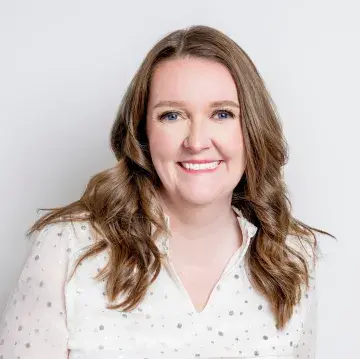Bringing Election Law to Students

Maureen Wagner Vinson, RWU Law Class of 2010
Juris DoctorA recent trip to the Roger Williams University School of Law campus gave Maureen Wagner Vinson L’10 the chance to revisit her days as a law student. She was happy to see that some of the professors who influenced her are still teaching, and she delighted in reconnecting with the beauty and charm of Bristol, Rhode Island.
Wagner Vinson now calls Florida home, working as the Executive Director of the non-partisan Election Law Center at the Florida State University College of Law in Tallahassee.
Appointed to the role in April 2024, she is thrilled to bring her passion for election law to this newly-formed program, where “we research and publish on a variety of election law issues such as election emergencies and post-election audits. We also help students interested in the election law field get placed at internships, provide scholarships, and offer opportunities for research in the field.”
Awareness of voting and election laws has increased with the rise of election-related litigation over the last few years, but Wagner Vinson has been directly involved with these issues since much earlier in her career.
In 2017 the New Jersey native was working in her home state as Deputy Chief of Staff at the Department of State under the Chris Christie administration when then-President Donald Trump's newly created Presidential Advisory Commission on Election Integrity wrote requesting the state’s voter data. “It was a super interesting role,” she says, adding that the experience led her to become “very interested in the field of election law.”
The next year, when then Governor, now Senator, Rick Scott's team asked if she would relocate to South Florida for four months to manage their Election Day Operations effort, she did not hesitate to make the move. “I worked the months leading up to early voting, then through the early voting and election day, and our voter integrity efforts pivoted into the recount. It was an incredible experience,” she recalls.
It also led to a connection that would keep Wagner Vinson in the Sunshine State. “While in South Florida, I met then Lieutenant Governor candidate Jeanette Nunez, and shortly after she assumed office, she offered me a position as her Chief of Staff in Tallahassee,” Wagner Vinson says. “It was a tremendous honor and I worked in Governor DeSantis's office for his first term, then left to be Deputy Secretary of Professions at the Department of Business and Professional Regulation.”
Wagner Vinson’s ability to form meaningful connections that lead to new career opportunities goes back to her days as a law student. While at RWU Law, she says, “I learned our Federalist Society chapter was defunct, so I worked with some of my conservative and libertarian friends - Diana Simpson, Tara O’Brien, Mary-Rose Watson, and Sam Rosado - to revive it. We hustled and hosted top-notch speakers and had several events with over one hundred attendees.” She credits the school with upholding its commitment to diversity of opinion and civil discourse, stating that many faculty members “were always happy to debate or serve on a panel with Federalist Society speakers.”
During the spring of Wagner Vinson’s 3L year, the Federalist Society offered her a position at its national office in Washington D.C., where she worked for almost five years. “This was a springboard for all of my subsequent positions,” she states.
At the non-partisan Election Law Center, Wagner Vinson fosters a learning environment that includes a range of backgrounds, experiences, and legal perspectives, and ensures that the discussions and analysis represent the legal field as a whole rather than just one viewpoint. “We have an upcoming event where Counsels for the Democratic and Republican Parties of Florida will discuss the 2024 election, and early next year we are having a 25th anniversary of Bush v. Gore conference, where we will host many of the key figures from that case,” she says.
Ultimately Wagner Vinson aims “to enrich the intellectual life at the FSU College of Law,” and though she is now a faculty member rather than part of the student body, she finds that it is “very rewarding to be back at a law school campus with all the positive energy and curiosity that exists.”
